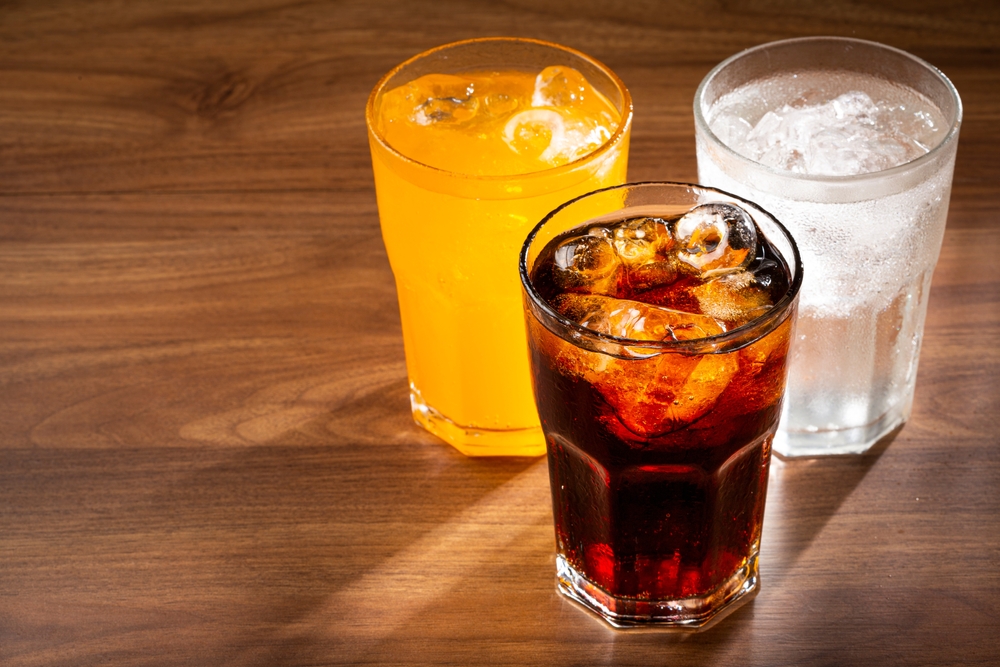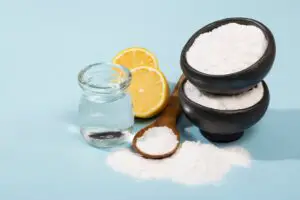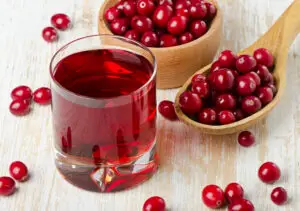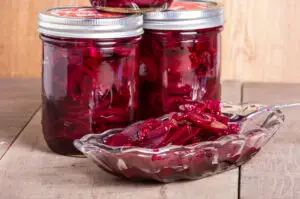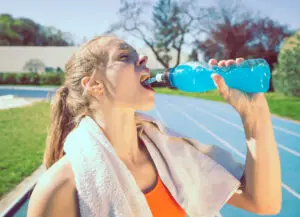In recent years, there has been growing interest in sodas without high fructose corn syrup (HFCS), as consumers become more aware of the potential health implications associated with the sweetener. HFCS is a commonly used ingredient in many soft drinks due to its cost-effectiveness and sweetness. However, concerns over its links to obesity, diabetes, and other health issues have prompted many people to seek alternatives.
A range of soft drinks has emerged that do not contain high fructose corn syrup, providing consumers with a wider choice of healthier options. Some well-known brands, such as Diet Coke, Fanta Zero, and Sprite Zero, have removed HFCS from their formulations and replaced it with artificial sweeteners like aspartame and acesulfame potassium. In addition, smaller companies and niche brands have also introduced their own natural sodas, which are often sweetened with sugar, fruit juices, or other natural ingredients.
This shift towards sodas without high fructose corn syrup indicates a growing demand for healthier alternatives in the soft drink market. As consumers become increasingly conscious of their dietary choices, manufacturers are recognising the importance of offering a selection of beverages that cater to varying tastes, preferences, and nutritional requirements.
Understanding High Fructose Corn Syrup
High fructose corn syrup (HFCS) is a widely used sweetener in food and beverage products. It is a processed liquid sugar substitute derived from corn starch. The conversion of corn starch into HFCS involves the use of enzymes to break down the starch into glucose, which is then further processed to increase the fructose content.
The main reason for its popularity in the food industry is its cost-effectiveness compared to traditional sugar. Sucrose, or table sugar, comes from sugar cane or sugar beet plants, whereas HFCS is sourced from corn, which is a more affordable and easily accessible crop. Additionally, HFCS has properties that make it appealing for certain manufacturing processes, including its liquid form and relative sweetness.
There are different types of HFCS, distinguished by their fructose content. The most commonly used types are HFCS-42, which contains 42% fructose, and HFCS-55, containing 55% fructose. The higher the fructose content, the sweeter the syrup, making it a desirable addition to various products such as soft drinks, sweetened juices, and processed desserts.
It is important to note that HFCS and corn syrup are not the same thing; corn syrup is derived from corn starch as well, but it is purely glucose, and does not contain fructose. Although both are used as sweeteners, they have different properties and applications in food manufacturing.
The Corn Refiners Association, an industry group that represents the corn refining companies in the United States, promotes and supports the production of HFCS and other corn-derived products. They provide information and resources on the benefits and uses of their products, aiming to create a positive image for the corn refining industry.
Despite its widespread use, HFCS has been a topic of controversy regarding its potential health risks, especially with respect to obesity and metabolic syndrome. Some studies suggest that excessive consumption of fructose may lead to health complications, while others argue that the effects of HFCS are similar to those of regular sugar.
In summary, high fructose corn syrup is a cost-effective, versatile sweetener derived from corn starch by enzymatic processes. Its prevalence in the food industry has raised concerns about possible health risks, though it remains a commonly used ingredient in many products, especially soft drinks and processed foods.
Health Implications of High Fructose Corn Syrup
Obesity and Diabetes
High fructose corn syrup (HFCS) has been linked to an increased risk of obesity and type 2 diabetes. The excessive consumption of HFCS can lead to weight gain due to its high calorie content, and replacing it with natural sweeteners in sodas can be a healthier option1. Furthermore, the high levels of fructose in HFCS can cause insulin resistance and ultimately contribute to the development of type 2 diabetes.
Heart Disease
There is ongoing debate about the relationship between HFCS, sucrose, and increased risk of heart disease or metabolic syndrome. Some studies show a direct link, whilst others argue that insufficient evidence exists for such a conclusion. Nevertheless, consuming sodas without high fructose corn syrup may still help in reducing the risk of cardiovascular disease, as they often contain a lower amount of added sugars in general.
Other Health Issues
Besides obesity, diabetes, and heart disease, the consumption of HFCS has been associated with other health concerns. For example, high fructose intake can lead to fatty infiltration of the liver or muscle, potentially increasing the risk of liver disease. Additionally, excess sugar from HFCS can contribute to tooth decay, as it provides an environment for bacteria to thrive. Opting for low-sugar or HFCS-free sodas can help to decrease the risk of these issues.
Comparing Sweeteners
When discussing sodas without high fructose corn syrup, it’s essential to compare the various sweeteners that can be used as alternatives. This section will cover natural and artificial sweeteners and their implications on health and taste.
Natural Sweeteners
Natural sweeteners encompass a range of sugar alternatives derived from natural sources. For instance, cane sugar, honey, and sucrose are all examples of natural sweeteners. Some of these options, such as stevia and monk fruit extract, come from plants and are often seen as a healthier choice due to their low-calorie content. Others, like table sugar (sucrose), are still considered natural but may not provide significant health benefits compared to their artificial counterparts.
- Pros: Natural sweeteners generally have a more familiar taste, are less processed, and may provide additional nutrients compared to artificial sweeteners.
- Cons: Some natural sweeteners, like table sugar, can still contribute to unhealthy weight gain and other health issues when consumed in excess.
Artificial Sweeteners
Artificial sweeteners are chemically engineered sugar substitutes designed to provide sweetness without the calories. Examples include aspartame, sucralose, and erythritol. These sweeteners are often used in diet sodas to provide a low or zero-calorie option, making them popular among people looking to reduce their sugar intake.
- Pros: Artificial sweeteners tend to have a low or zero calorie count and do not contribute to tooth decay like natural sugars.
- Cons: Some people may experience an aftertaste or sensitivity to specific artificial sweeteners, and their long-term health effects are still subject to debate.
In conclusion, determining the best sweetener option for a soda without high fructose corn syrup involves weighing the pros and cons of natural and artificial alternatives. Each option has unique properties that can cater to different preferences and health needs.
Analysing Labels and Ingredients in Sodas
When searching for sodas without high fructose corn syrup, it is essential to carefully examine the labels and ingredient lists on the packaging. The most straightforward way to determine if a soda contains fructose or other types of added sugars is to check the ingredients list. As a general rule, the fewer ingredients a soda has, the more likely it is to be free from excessive added sugars and artificial ingredients.
Sodas can be made with various sweeteners like natural sugar, fruit juice concentrate, or artificial sweeteners, and their calorie count can vary accordingly. Labels often display the total calorie count, allowing consumers to make informed choices according to their dietary needs. When choosing sodas made without fructose, opting for sugar-free or low-calorie alternatives can be helpful. However, it is crucial to consider that artificial sweeteners may have an impact on health, as some studies have linked them to diabetes and other health issues.
A healthy alternative to conventional sodas is sparkling water, which can be naturally flavoured with fruit juices and extracts. Sparkling water typically contains few or no calories and no added sugars, making it suitable for individuals watching their sugar intake. Another popular choice is seltzers, which are also made from carbonated water and offer a range of flavours with no added sugars.
When browsing through sodas, it’s essential to be cautious of marketing terms such as “no added sugar” and “zero calorie”. While these labels may indicate that the soda does not contain high fructose corn syrup, they may still contain other sweeteners or ingredients that may not be ideal for those looking to maintain a healthy diet. Nonetheless, there are notable examples of sodas that do not contain high fructose corn syrup, such as Diet Coke and Sprite Zero.
In conclusion, scrutinising labels is critical when searching for sodas without high fructose corn syrup. By understanding the various ingredients and their potential impact on health, consumers can make more informed choices. Opting for sugar-free, low-calorie, or naturally flavoured alternatives like sparkling waters and seltzers can be a better choice when trying to avoid fructose and other artificial ingredients in processed foods.
Sodas without High Fructose Corn Syrup
Natural Soda Brands
One of the natural soda brands that do not use high fructose corn syrup is Spindrift. Spindrift offers a variety of flavours made with simple ingredients like sparkling water, fruit puree, and fresh lime juice.
Another brand, Reed’s, offers ginger ale made with natural cane sugar and ginger root. Blue Sky is a brand that produces natural sodas free from high fructose corn syrup and artificial flavours. Their beverages are sweetened with cane sugar and stevia leaf extract.
IZZE is an innovative brand that combines fruit juice and sparkling water, creating a fizzy and refreshing drink alternative.
Artificially Sweetened Soda Brands
For those who prefer artificially sweetened sodas, there are several options available without high fructose corn syrup. Diet Coke and Coke Zero use artificial sweeteners like aspartame and acesulfame potassium, making them zero-calorie drink choices.
Similarly, Fanta Zero and Sprite Zero offer sugar-free alternatives without high fructose corn syrup. These options are also favoured for those counting calories but still craving carbonated beverages.
Bubly and AHA are sparkling water brands that provide calorie-free and sugar-free options with a variety of flavours to choose from. These beverages are infused with natural fruit flavours to satisfy your carbonated cravings in a healthier way.
Another alternative is Zevia, the first stevia-sweetened soda. Zevia is a zero-calorie soda that comes in various flavours, making it a healthier alternative to traditional sodas.
Virgil’s offers a range of naturally sweetened sodas like root beer and cream soda made with natural ingredients and sweeteners such as stevia and erythritol.
For those looking for a more sophisticated option, sparkling water brands LaCroix and Perrier provide flavoured sparkling waters without high fructose corn syrup, artificial sweeteners, or added sugars. These beverages can help quench your thirst for a fizzy drink while maintaining a healthy lifestyle.
Healthy Alternatives to Sodas
In an effort to promote a healthier lifestyle and avoid the negative effects of high fructose corn syrup found in many sodas, there are a range of healthier beverage options to consider. This section presents a variety of alternatives, including nutrient-rich drinks, low-sugar options, and flavourful water alternatives.
Nutrient-Rich Drinks
One way to replace sodas is by choosing nutrient-rich beverages made from fruits or vegetables. Fruit juices that contain real juice provide essential vitamins and minerals for the body. However, it is important to opt for 100% fruit juice over options with added sugar. Vegetable juices can also be an excellent source of nutrients, and mixed vegetable-fruit juices offer a flavourful balance between the two.
Low-Sugar Drinks
For those who still crave a slightly sweet beverage, low-sugar drinks such as diet sodas and zero-calorie options are available. Products like Diet Coke, Diet Pepsi, and Coke Zero turn to artificial sweeteners instead of fructose, thus reducing the calorie content. Another alternative is sparkling mineral water that often has less sugar than traditional soft drinks yet provides the desired fizz.
Flavourful Water Alternatives
Maintaining proper hydration is vital for overall health, and water is one of the best ways to stay hydrated. To make water more appealing, consider adding natural ingredients such as herbs, spices, or fruit slices. For instance, infusing water with ginger, mint, or cucumber creates a refreshing twist. Sparkling water flavoured with fruit essence is another pleasant option, especially for those looking to replace carbonated sodas.
Incorporating these healthier alternatives into one’s daily routine can lead to better hydration, increased nutrient intake, and an overall improvement in well-being.
Wrap up: Making Informed Choices
When considering the consumption of soft drinks, one may want to be mindful of the ingredients, particularly high fructose corn syrup. Many sodas, such as Diet Coke and Hansen’s Natural Soda, utilise alternative sweeteners or natural sources of sugar, thus avoiding high fructose corn syrup.
With a heightened awareness of sugar, calories, and healthier options, choosing drinks that contain natural ingredients may become more appealing. Drinking water remains the healthiest choice, providing hydration without calories or artificial additives. However, for those who prefer a bit of flavour, incorporating fruit-based drinks or home-infused waters can serve as a tasty and healthy alternative.
Selecting sodas without high fructose corn syrup allows for more mindful consumption choices. These options might provide a similar taste to traditional soft drinks, but with a potentially reduced impact on overall health. Additionally, searching for products made with organic or natural ingredients can help satisfy a sweet tooth without the unwanted effects of high fructose corn syrup.
In conclusion, taking the time to explore sodas without high fructose corn syrup can lead to a more informed, healthier, and guilt-free drinking experience. The market offers a variety of choices that cater to the taste preferences and health concerns of individuals, promoting a more balanced approach to sugar and calorie intake in beverages.
My name is Ellis Francis and I have been a personal fitness trainer, sports nutritionalist and health and fitness advisor for over 25 years. I am the lead health and fitness advisor at https://awellnessbody.com.

